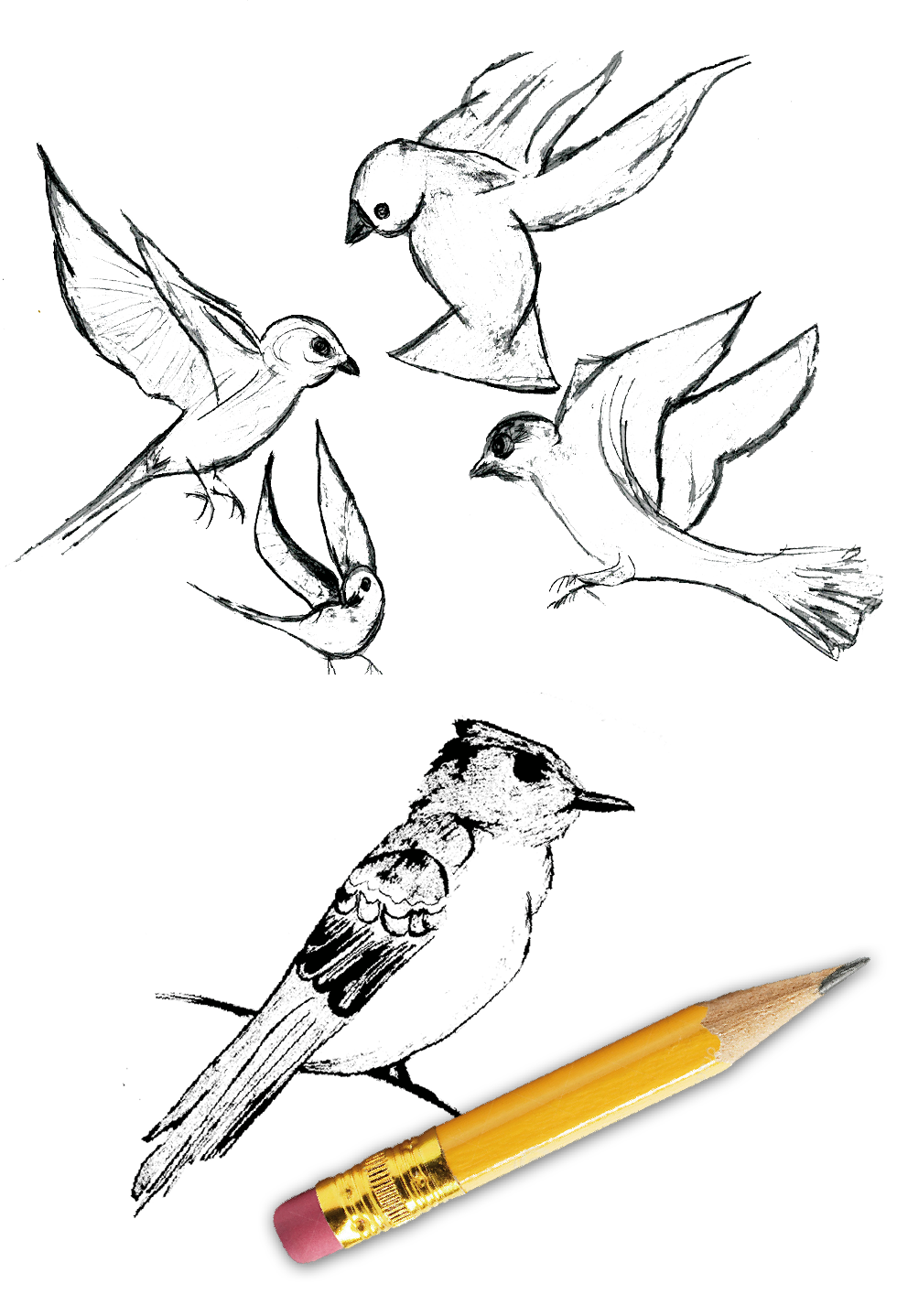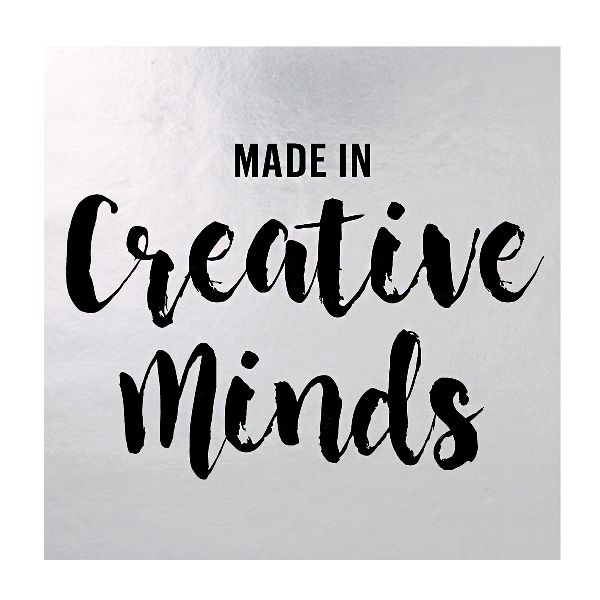
Harvard University Capstone Project
Your Baby Is A Miracle
Humble Submission: i submit all of my Educational Films as Sadaqah-e-Jariyah (continuing act of charity) for the upliftment of my father’s soul. May his soul rest in eternal peace. May he be in the loving arms of God. Aameen.
Credits & Citations
Content, Research & Concept By:
UNICEF | For Every Child & The Lego Foundation
Produced & Directed By: Zohra Lakhani
Voice-Over By: Anna Crowe
Background Music & Sound Effects By: MixIt
Sound Design & Animation By: Zohra Lakhani
Zohra Lakhani Portfolio
creativejoys.me/projects
creativejoys.me/work/
youtube.com/@ZohraLakhani
Voice-over Artist Portfolio
crowecreative.com/about
crowecreative.com/voiceover
crowecreative.com/audiobook
Gratitude & Many Thanks To
Harvard University
My Beloved Parents (Late Mr. Akbar Ali Lakhani
& Mrs. Malek Lakhani)
My Loving Husband (Nizar)
President Lawrence S. Bacow
Dean Shirley R. Greene
Dr. Hongming Wang
Professor Allyson Sherlock
Professor Jason Wiser
Professor Kerry Foley
Professor Nicholas J. Manley
Professor Ed Hebert
Professor David Heitmeyer
Professor Christina Inge
Professor Adrienne Phelps-Coco
Professor Karina Lin-Murphy
Professor Kenyon M. King
Alexandra Bandow
Mary Godfrey
MT Brackett
Delia Lupu
Shais Khan
Lacey Klingensmith
Nada El-Newahy
Carol Crouch
Anna Crowe
Antonia Diakomopoulou
Transcript
Your little bundle of joy – your baby is a miracle!
Did you know? Babies’ brains develop in the first 1,000 days at a pace never repeated again. This is why, for every child, early moments matter and their effects can last a lifetime.
Science is clear - life is a story for which the beginning sets the tone. That makes the early years of childhood a time of great opportunity.
To simplify, your baby’s growth can be unfolded by understanding domains of development. Your cute wonder’s 5 domains of development are:
• Physical Development
• Cognitive Development
• Social & Emotional Development
• Language Development
• Spiritual & Moral Development
Physical Development
The physical domain covers the development of physical changes, which includes growing in size and strength, as well as the development of both gross motor skills and fine motor skills. The physical domain also includes the development of the senses and using them.
Fine motor skills help kids perform tasks for daily living, like buttoning buttons, picking up finger foods, using a spoon or fork, pouring milk, going to the restroom, and washing their hands.
You shouldn’t overlook your baby’s need to develop their fine motor skills. From an early age, give them opportunities to use their hands and fingers. Give your baby rattles, plush balls, and other toys to grasp. Later, toys that allow them to pick things up and fit them into slots are good for developing beginning skills.
In addition to these fine motor skills, kids also learn to use their larger muscles, like those in their arms, legs, back, and stomach. Walking, running, throwing, lifting and pulling, are all important skills that are related to body awareness, balance, and strength.
Parents can help their child’s physical development by providing opportunities for age-appropriate activities. For instance, babies need regular tummy time to build their neck and upper body strength, while preschoolers and school-aged children need plenty of opportunities to run around and play.
Cognitive Development
The cognitive domain includes intellectual development and creativity. As they develop cognitively, kids gain the ability to process thoughts, pay attention, develop memories, understand their surroundings, express creativity, as well as to make, implement, and accomplish plans.
You can help your baby develop and hone their cognitive skills by giving them opportunities to play with blocks, puzzles, and board games. You also should create an environment where your child feels comfortable asking questions about the world around them and has plenty of opportunities for free play.
Social & Emotional Development
The social-emotional domain includes a child’s growing understanding and control of their emotions. They also begin to identify what others are feeling, develop the ability to cooperate, show empathy, and use moral reasoning. This domain includes developing attachments to others and learning how to interact with them.
To help your child develop both socially and emotionally, look for opportunities for them to interact with kids their age and help them form relationships with both children and adults. You can arrange play-dates and explore playgroups. Also encourage them to spend time with their grandparents and teachers.
Language Development
Language development includes the ability to communicate with others. It is a source of wonder to watch language emerge in a child.
One of the most important things you can do with your cute bundle of joy throughout their early life is to read to them—and not just at bedtime. In addition to reading, make sure you are talking to your kids even before they can say their first word.
Spiritual & Moral Development
Through spiritual development, children learn to be aware of and comfortable with qualities such as respect, responsibility, and care for self and others. They learn to be capable of acknowledging differences between people without feeling fear.
Developmental Delays
As babies grow and learn, they will pass certain developmental milestones. Extensive milestone checklists are available for each domain of baby’s development on UNICEF’s website. These milestones provide general guidelines that help parents and caregivers gauge whether or not a child is on track.
The exact timing that a child reaches a particular milestone will vary significantly. However, missing one or two milestones can be a cause for concern.
Talk to your child’s pediatrician if you’re worried that your child is not meeting milestones in a particular area. They can evaluate your child and recommend different services if a delay is identified.
For reading and exploring more about your baby’s early education, care and development, please refer to the ‘Works Cited’ section in the video’s description.
Happy parenting!
Works Cited
3 fun ways to practice problem solving | UNICEF Parenting. (n.d.). 3 Fun Ways to Practice Problem Solving | UNICEF Parenting; www.unicef.org.
Retrieved July 15, 2022, from https://www.unicef.org/parenting/child-care/3-fun-ways-practice-problem-solving
6001 Free Fonts | Download 69000 Fonts. (n.d.). 1001 Free Fonts | Download 69000 Fonts; www.1001freefonts.com. Retrieved July 13, 2022, from https://www.1001freefonts.com/
Abecassis, M., Barrett, M. D., Bellmore, A., Bissaker, K., Buhs, E., Buchanan-Barrow, E., ... & Brinton, B. (2002). Blackwell handbook of childhood social development. P. K. Smith, & C. H. Hart (Eds.). Oxford, UK: Blackwell Publishers.
Adobe: Creative, marketing and document management solutions. (n.d.). Adobe: Creative, Marketing and Document Management Solutions; www.adobe.com. Retrieved July 13, 2022, from www.adobe.com
Anderson, L. M., Shinn, C., Fullilove, M. T., Scrimshaw, S. C., Fielding, J. E., Normand, J., ... & Task Force on Community Preventive Services. (2003). The effectiveness of early childhood development programs: A systematic review. American journal of preventive medicine, 24(3), 32-46.
Anderson-McNamee, J. K., & Bailey, S. J. (2010). The importance of play in early
childhood development. Montana State University Extention, 4(10), 1-4.
Black, M. M., Walker, S. P., Fernald, L. C., Andersen, C. T., DiGirolamo, A. M., Lu, C., ... & Lancet Early Childhood Development Series Steering Committee. (2017). Early childhood development coming of age: science through the life course. The Lancet, 389(10064), 77-90.
Boyatzis, C. J. (2005). Religious and spiritual development in childhood. Handbook of the psychology of religion and spirituality, 123-143.
Britto, P. R., Engle, P. L., & Super, C. M. (Eds.). (2013). Handbook of early childhood development research and its impact on global policy. Oxford University Press.
Burger, K. (2010). How does early childhood care and education affect cognitive development? An international review of the effects of early interventions for children from different social backgrounds. Early childhood research quarterly, 25(2), 140-165.
Carson, V., Hunter, S., Kuzik, N., Wiebe, S. A., Spence, J. C., Friedman, A., ... & Hinkley, T. (2016). Systematic review
Center on the Developing Child at Harvard University. (2017, December 4). Center on the Developing Child at Harvard University; developingchild.harvard.edu. https://developingchild.harvard.edu/
Language development in early childhood: Integrating past research in the two domains. Early child development and care, 130(1), 85-97.
Child development | UNICEF Parenting. (n.d.). Child Development | UNICEF Parenting; www.unicef.org. Retrieved July 15, 2022, from https://www.unicef.org/parenting/child-development
Cohen, S. D. (2017). Three Principles to Improve Outcomes for Children and Families. Science to Policy and Practice. Center on the Developing Child at Harvard University.
Coolors - The super fast color palettes generator! (n.d.). Coolors.Co; coolors.co. Retrieved July 13, 2022, from https://coolors.co/
Cooper, J. L., Masi, R., & Vick, J. (2009). Social-emotional development in early childhood: What every policymaker should know.
Coyne, L., & Murrell, A. (2009). The joy of parenting: An acceptance and commitment therapy guide to effective parenting in the early years. New Harbinger Publications.
Creative Commons. (2022, February 28). Creative Commons; creativecommons.org.
Daelmans, B., Darmstadt, G. L., Lombardi, J., Black, M. M., Britto, P. R., Lye, S., ... & Richter, L. M. (2017). Early childhood development: the foundation of sustainable development. The Lancet, 389(10064), 9-11.
DaFont - Download fonts. (n.d.). DaFont - Download Fonts; www.dafont.com. Retrieved July 13, 2022, from https://www.dafont.com/
Early childhood development | UNICEF. (n.d.). Early Childhood Development | UNICEF; www.unicef.org. Retrieved July 13, 2022, from https://www.unicef.org/early-childhood-development
Early childhood development | UNICEF. (n.d.). Early Childhood Development | UNICEF; www.unicef.org. Retrieved July 15, 2022, from https://www.unicef.org/early-childhood-development
Freeberg, N. E., & Payne, D. T. (1967). Parental influence on cognitive development in early childhood: A review. Child Development, 65-87.
Freepik | Graphic Resources for everyone. (n.d.). Freepik; www.freepik.com. Retrieved July 13, 2022, from www.freepik.com
Glascoe, F. P., & Robertshaw, N. (2009). PEDS: Developmental milestones. Moorabbin: Hawker Brownlow Education.
Gutman, L., Brown, J. F., & Akerman, R. (2009). Nurturing parenting capability: the early years.
Harvard University. Center on the Developing Child. (2007). A science-based framework for early childhood policy: Using evidence to improve outcomes in learning, behavior, and health for vulnerable children. Center on the Developing Child, Harvard University.
Hirsh Pasek, K., Ferguson, B., Palti, I., Michnick Golinkoff, R., & Hassinger-Das, B. (2015). Urban thinkscape: Transforming cityscapes into opportunities for playful learning.
Home | XPLANE | Organizational Change Management Consulting. (2022, June 21). XPLANE | Organizational Change Management Consulting; xplane.com.
How play strengthens your child’s mental health | UNICEF Parenting. (n.d.). How Play Strengthens Your Child’s Mental Health | UNICEF Parenting; www.unicef.org. Retrieved July 15, 2022, from https://www.unicef.org/parenting/child-development/how-play-strengthens-your-childs-mental-health
Howes, C., & James, J. (2002). Children’s social development within the socialization context of childcare and early childhood education. Blackwell handbook of childhood social development, 137-155.
Indoor play ideas to stimulate young children at home | UNICEF Parenting. (2020, April 13). Indoor Play Ideas to Stimulate Young Children at Home | UNICEF Parenting; www.unicef.org. https://www.unicef.org/parenting/
coronavirus-covid-19-guide-parents/
indoor-play-ideas-stimulate-young-children-home
Johnson, J. E., Christie, J. F., Yawkey, T. D., & Wardle, F. P. (1987). Play and early childhood development. Scott, Foresman & Co.
Jolly, R. (2007). Early childhood development: the global challenge.
Jones, S. M., Zaslow, M., Darling-Churchill, K. E., & Halle, T. G. (2016). Assessing early childhood social and emotional development: Key conceptual and measurement issues. Journal of Applied Developmental Psychology, 45, 42-48.
Malina, R. M. (2004). Motor development during infancy and early childhood: Overview and suggested directions for research. International journal of sport and health science, 2, 50-66.
Miller, M. (2012). The logic of language development in early childhood (Vol. 3). Springer Science & Business Media of physical activity and cognitive development in early childhood. Journal of science and medicine in sport, 19(7), 573-578.
Parenting tips for the first two years of life | UNICEF Parenting. (n.d.). Parenting Tips for the First Two Years of Life | UNICEF Parenting; www.unicef.org. Retrieved July 15, 2022, from https://www.unicef.org/parenting/
Parents Should Watch for Developmental Milestones and Delays. (2022, March 25). Verywell Family; www.verywellfamily.com. https://www.verywellfamily.com/
developmental-milestones-4020408
Playtime, anytime! | UNICEF Parenting. (2020, June 16). Playtime, Anytime! | UNICEF Parenting; www.unicef.org. https://www.unicef.org/parenting/
Reynolds, A. J., Ou, S. R., Temple, J. A., Davis, B., Bustamante, A., Bronfin, M., ... & Austin, L. J. (2018). 1.“Brain Architecture,” Center on the Developing Child, Harvard University, accessed March 23, 2018, https. OUR KIDS, OUR FUTURE, 172(3), 115.
Schein, D. (2014). Nature’s role in children’s spiritual development. Children Youth and Environments, 24(2), 78-101.
Smith, J., & Team, A. C. (2014). Adobe creative cloud design tools digit
Smith, M. (2010). Good parenting: Making a difference. Early human development, 86(11), 689-693.
Spirituality is an aspect of children’s self identity - but how do we teach it? (2019, April 15). The Sector; thesector.com.au. https://thesector.com.au/2019/04/15/
spirituality-is-an-aspect-of-childrens-self-identity-but-how-do-we-teach-it/
Statista - The Statistics Portal. (n.d.). Statista; www.statista.com. Retrieved July 13, 2022, from https://www.statista.com/
Stock Images, Photos, Vectors, Video, and Music | Shutterstock. (n.d.). Shutterstock; www.shutterstock.com. Retrieved July 13, 2022, from www.shutterstock.com
TeamGantt: Online Gantt Chart Maker Software - Free Forever. (n.d.). TeamGantt: Online Gantt Chart Maker Software - Free Forever; www.teamgantt.com. Retrieved July 13, 2022, from https://www.teamgantt.com/
The Lego Foundation. A World of Learning Through Play. (n.d.). A World of Learning Through Play; learningthroughplay.com. Retrieved July 15, 2022, from https://learningthroughplay.com/
The science of play | UNICEF Parenting. (n.d.). The Science of Play | UNICEF Parenting; www.unicef.org. Retrieved July 15, 2022, from https://www.unicef.org/parenting/
What is Early Childhood Development? A Guide to Brain Development. (2022, March 25). Center on the Developing Child at Harvard University; developingchild.harvard.edu. https://developingchild.harvard.edu/
guide/what-is-early-childhood-development-
Why companies large and small trust Miro. (n.d.). https://miro.com/; miro.com. Retrieved July 13, 2022, from miro.com
Wikipedia, the free encyclopedia. (n.d.). Wikipedia, the Free Encyclopedia; en.wikipedia.org. Retrieved July 13, 2022, from https://en.wikipedia.org
Yambo, K., Panem, M., Birney, A., Winchester, J., & Sr., J. S. (2022, July 13). The Cultured Nerd. The Cultured Nerd; theculturednerd.org. https://theculturednerd.org/
Your baby’s developmental milestones.
Unicef.org. 2022. https://www.unicef.org/parenting/
child-development/your-babys-developmental-milestones.
Zeng, N., Ayyub, M., Sun, H., Wen, X., Xiang, P., & Gao, Z. (2017). Effects of physical activity on motor skills and cognitive development in early childhood: a systematic review. BioMed research international, 2017.
Copyright © 2012 - Lifetime. Creative Joys. All rights reserved.

